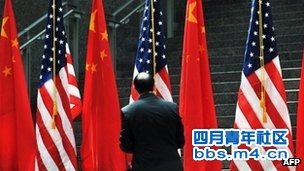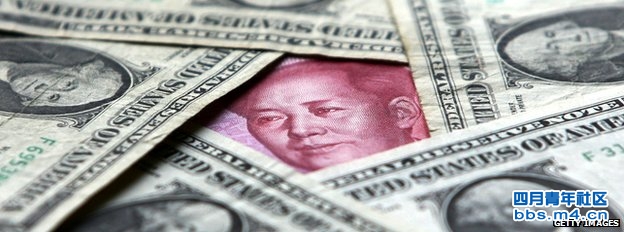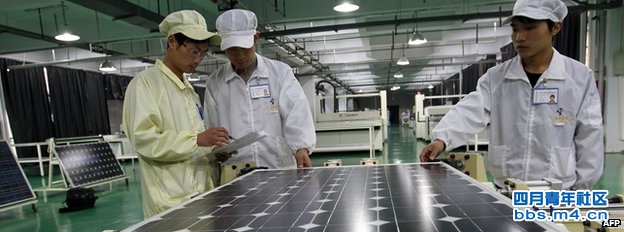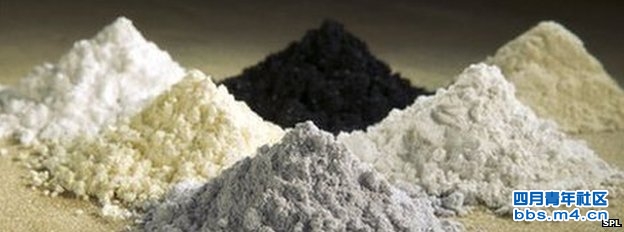|
|
本帖最后由 woikuraki 于 2012-11-7 14:17 编辑
US - China relations: Trade flashpoints
6 November 2012Last updated at 06:55 GMT
By Puneet Pal Singh, Business Reporter, BBC News, Singapore
http://www.bbc.co.uk/news/business-20177210
No other country's economic rise has been debated as ferociously or caused as much concern in the US, as that of China.
From allegations of keeping its currency artificially low to boost exports to the labelling of some of its firms as a security threat, China's growth has put the relationship between the world's two biggest economies to the test.
And with both President Barack Obama and his challenger Mitt Romney promising to put further pressure on China, the tests are only likely to get tougher.
Add to the mix the fact that China is also set for a once-in-a-decade leadership change over the next few days. Its new leaders will be keen to stamp their authority not just on the domestic front, but also on the global stage.
This could potentially see both sides taking hardline stands on a range of trade issues which have been the focus of debate between them in recent times:

Strong relations between the US and China are seen as key to global economic and political stability
Currency valuation

US stand
The US has accused China of keeping the value of its currency, the yuan, artificially low to boost exports. This makes Chinese goods cheaper and - the US claims - gives China's manufacturers an advantage. The US lawmakers have claimed that China's currency policies have been one of the key reasons behind job losses in the US. If elected, Mitt Romney has vowed to formally label China a "currency manipulator" on his first day in office, opening the way to trade sanctions.
China's take
China has said that it will let its currency float more freely, but has maintained that a sudden rise in its value may hurt its overall economy. The yuan was pegged to the US dollar until 2005, when it was allowed to float against a basket of currencies each day. It has risen nearly 25% against the US dollar since then. However, it trades within 1% range of the daily price set by China's central bank and critics say it is still undervalued. Some argue that China's policies have benefited US consumers as goods have become cheaper.
Analyst's view
"Irrespective of who wins the election, the US pressure on China to appreciate its currency further is going to increase. The US has been pushing for the yuan's appreciation in a bid to get some manufacturing to return to the country and boost jobs growth. This will remain a point of friction between the two sides, but it is unlikely that the US pressure will have any effect on China's policies and its stand on the issue," says Dariusz Kowalczyk, senior economist and strategist at Credit Agricole CIB in Hong Kong.
"Dumping" and duties

US stand
The US has accused China of selling certain goods in the US at below fair market value, a process known as "dumping". It has said that it will impose anti-dumping duties on such products. The US has also alleged that China grants state subsidies to some of its firms which makes Chinese goods such as solar panels cheaper and hurts US manufacturers. The US has threatened to impose countervailing duties to offset that.
China's take
China has denied these allegations calling them baseless. Meanwhile, China has also accused the US of giving subsidies to some of its steel manufacturers and imposed import tariffs on a particular kind of steel. However, the World Trade Organization (WTO) said these tariffs were illegal. The US has also filed a complaint with the WTO against Chinese tariffs on US chicken imports.
Analyst's view
"The Chinese are not looking to rock any boat with the US right now as they focus on domestic issues. However, if we see the US increase its pressure on China and drag it to the WTO on more such cases, Beijing is likely to retaliate with similar moves," says Rachel Shoemaker, regional manager Asia-Pacific at Exclusive Analysis.
Rare earth exports

US stand
The rare earth elements are key components of many modern-day devices such as flat-screen TVs, MP3 players and hybrid cars. China accounts for more than 90% of global production of these elements. The US has alleged that China's policy to implement quotas on exports of rare earths has resulted in a spike in prices. The US thinks China's policies break international trade rules and, along with the European Union and Japan, it has lodged a complaint at the WTO challenging Beijing's policies.
China's take
China has defended its policies, saying that it enforced the quotas to ensure there was no environmental damage caused due to excessive mining. While China accounts for more than 90% of global rare earth production, it has only about 23% of global reserves. Earlier this year, China warned that its reserves were depleting fast and urged other countries with rare earth reserves to boost production.
Analyst's view
"We are of the view that China actually instigated a price rise so that the rest of the world would take note and look for other sources. If they are the only ones producing - they will inevitably run out of their stock and wouldn't have any left for domestic consumers. You can already see the effect as there are a number of other rare earth projects that have started to appear on the horizon," says David Lennox, resources analyst at Fat Prophets.
Security fears

US stand
The US has raised concerns about Chinese access to its key assets. Last month, it said that Chinese telecom equipment makers Huawei and ZTE were a security threat. It alleged that some of the equipment made by these firms had been installed with codes to help spying. However, a leaked report showed that the US had found no evidence of spying by Huawei. The US president Barack Obama also blocked the sale of four wind farm projects near a US naval facility in Oregon to a Chinese firm, citing national security concerns.
China's take
Huawei and ZTE have both denied the allegations. China's Commerce Ministry also criticised the US report on the firms, saying that the US was using national security as an excuse for "blocking Chinese companies from fair competition in the US market". Meanwhile, Ralls Corp, the firm whose wind farm deal was blocked, has since sued Mr Obama alleging that the US government overstepped its authority.
Analyst's view
"This is a significant issue. Chinese firms are now competing in hi-tech industries, a sector where they have not been so dominant in the past. And as they increase their market share, we might see an escalation in these fears and complaints against them. However, it is very difficult for someone outside the government to judge how real the security threat from them really is," says Stephen Joske, senior manager at AustralianSuper, a Beijing based fund.
|
|